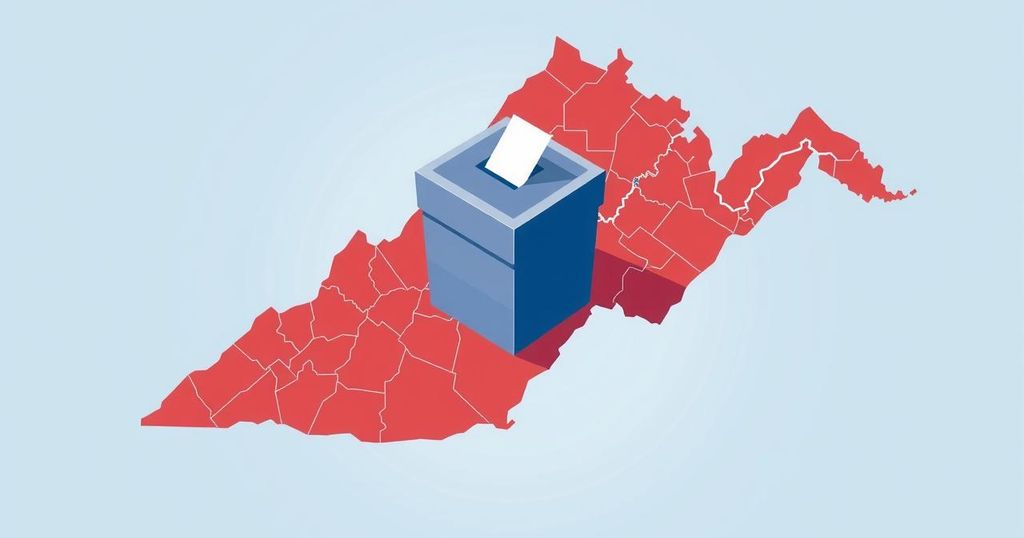World news
AFRICA, CHRIS CHRISTIE, COMMONWEALTH, DEMOCRATS, ELECTION, GEORGE H. W. BUSH, GLENN YOUNGKIN, LEGISLATION, MCAULIFFE, NEW JERSEY, PEW, PEW RESEARCH, POLL RESULTS, PRESIDENTIAL CANDIDATES, PRESIDENTIAL ELECTION 2024, SENATE, SOUTH AFRICA, TIM KAINE, U. S, U. S. SENATE, US ELECTIONS, VIRGINIA
David O'Sullivan
0 Comments
Why Virginia’s 2025 Gubernatorial Election is a Critical Political Metric
The 2025 gubernatorial election in Virginia, one of only two such elections that year alongside New Jersey, is attracting considerable attention as a potential reflection of national political trends. With its recent Democratic leanings yet a history of electing governors from the opposing party, Virginia’s election results could impact upcoming federal elections. Polls currently favor Democratic candidate Abigail Spanberger, but historical trends suggest unpredictability in the final outcome.
The 2025 gubernatorial election in Virginia holds considerable significance, as it is one of only two states slated for such elections alongside New Jersey. Both states draw national attention post-presidential elections, yet Virginia’s result is often seen as more impactful. While New Jersey has not supported a Republican for statewide office since 1972, Virginia’s political landscape has been shifting notably.
Historically, Virginia leaned Republican, consistently voting for the GOP in federal elections until it began to lean more Democratic starting in 2008. The state has thus far elected Democrats Mark Warner and Tim Kaine to the Senate, continuing this trend. However, intriguingly, Virginia has a law that prohibits governors from serving consecutive terms, which complicates political continuity.
A unique aspect of Virginia’s elections is their curious opposition to the sitting president. From 1977 to 2013, the state consistently voted a governor from the rival political party of the current president. Even during a Democratic federal trend, Virginia elected Republican Glenn Youngkin in 2021. The upcoming 2025 election will test whether this trend continues or shifts.
As a crucial swing state, Virginia’s response to the political climate, especially following Donald Trump’s presidency, is under the microscope. Trump’s current approval ratings hover around 40%, according to Pew Research, creating a challenging backdrop for the Republican party. Early polls show Democratic nominee Abigail Spanberger leading, but history reminds us that electoral outcomes are often unpredictable.
Recent gubernatorial races in Virginia, such as those in 2013 and 2021, exhibited razor-thin margins. In both instances, the candidates were separated by less than three percentage points, illustrating just how fluid the electoral landscape can be. In 2013, Terry McAuliffe, the Democratic nominee, seemed to have an upper hand in polls, only to find a closer race than anticipated.
As this election approaches, it remains crucial for both parties to recalibrate their strategies, particularly as they eye the subsequent 2026 elections for the Senate and House. With early voting for party primaries already underway in Virginia, it sets the stage for what could be a pivotal election year so close to national prominence.
In summary, the political stakes in Virginia’s 2025 gubernatorial election are significant. The outcome may signal broader national trends, especially regarding voter sentiment towards the federal administration and party strategies moving forward. As such, attention will be fervently focused on the Commonwealth’s vote as election day looms.
The 2025 gubernatorial election in Virginia will be pivotal, showcasing not only the state’s shifting political climate but also acting as a referendum on the Biden administration and public sentiment towards the Republican party. As Virginia has been known to alternate its party allegiance in gubernatorial elections based on the sitting president, all eyes will be watching how Democratic nominee Abigail Spanberger fares against the backdrop of Trump’s approval ratings and the recent political history of close races. The outcome could significantly influence upcoming Senate and House elections across the United States.
Original Source: www.wsls.com




Post Comment